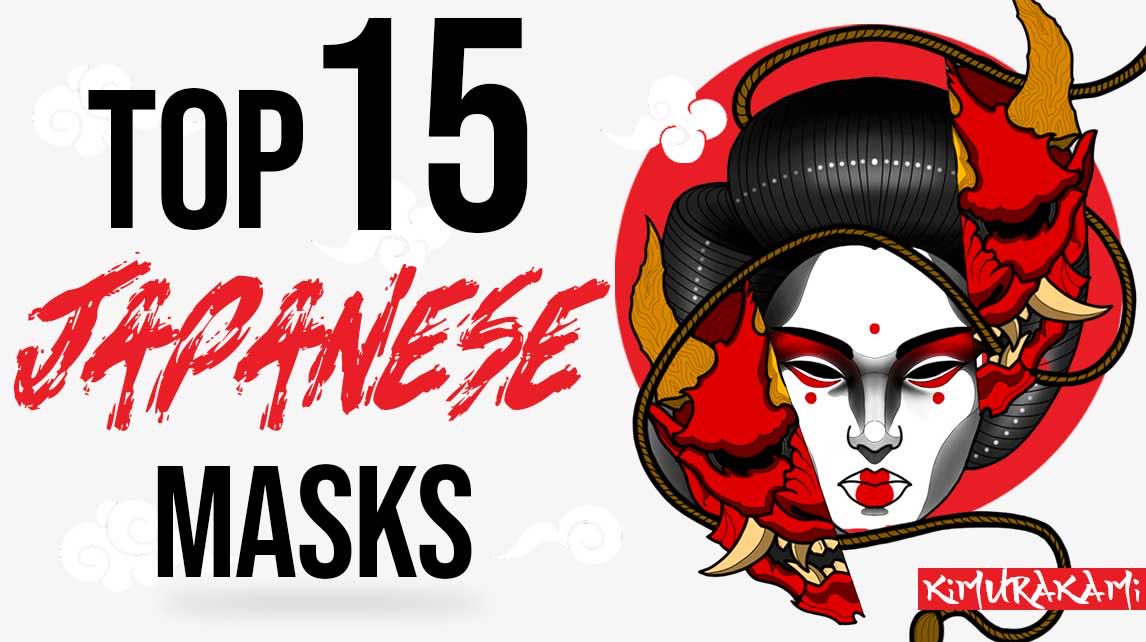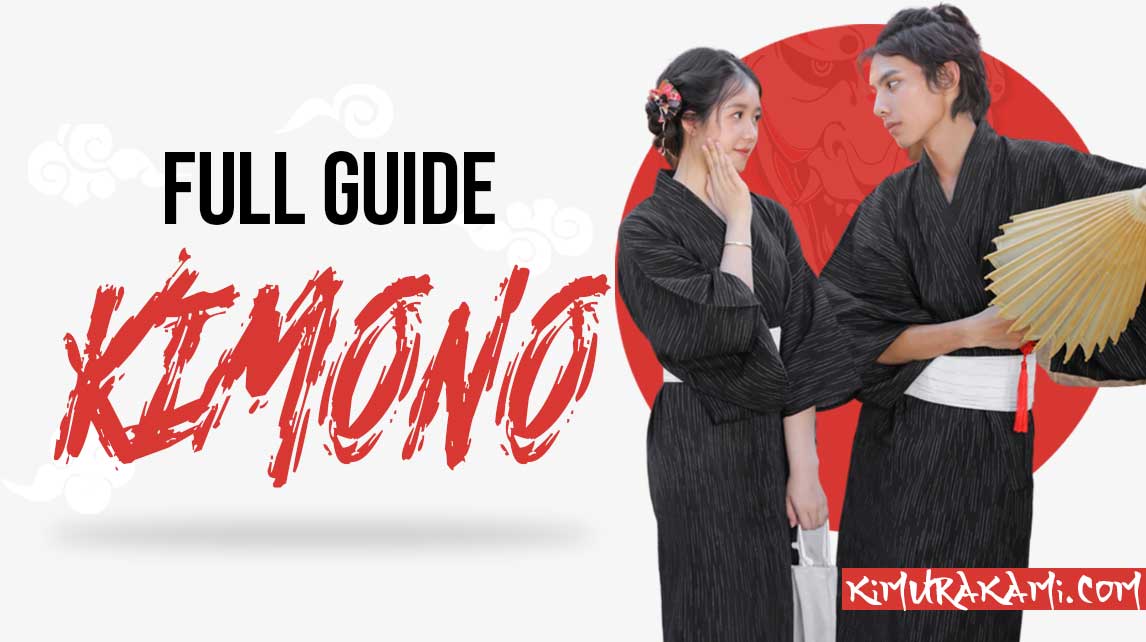Many expressions are used on the web to categorize a group of people. Regardless of their activities or interests, one may hear words such as Geek, Nerd, Dweeb or many others... Whether positive or negative, they generally identify and bring together communities around the world.
The term "Weeaboo" was born in the early 2000s. A derisive and offensive moniker, purposely coined to insult Westerners who are passionate about Japanese culture to an infuriating degree. Weeb is an abbreviation of Weeaboo, first mentioned on Twitter (2010) and in the Urban Dictionary (2011).
You will discover:
- The origin of "Weeaboo"
- The definitions and criteria for this label
- The difference with an "Otaku"
- Being Weeaboo these days
- The common misconceptions
For indeed the weeb are often confused with the Otaku, so we will see throughout this article the differences between these two subcultures...
Where did we get the name "Weeaboo"?

"Weeaboo" is a nonsense word coined in the comic strip "The Perry Bible Fellowship." Initially, it had no meaning whatsoever. It became meaningful in 2005 from the 4chan filter and spread across the web. 4chan is a Japanese forum discussion site based on visual content. Users can share images and post comments anonymously.
The origin of this term can be traced back to the late 18th and very early 19th centuries. It is referred to at that time as Japonophilia. It refers to a heightened affinity for the history, culture, and people of the Land of the Rising Sun (Japan). Therefore, an individual who does not belong to this society, with a strong penchant for all things Japanese, is called a "Japonophile."
It can be said that the first officially appeared Japonophiles are Carl Peter Thunberg and Philipp Franz von Siebold. They were instrumental in introducing the Japanese fauna, flora and arts to Europe. Some British authors praised Japan, characterizing it as a "rising star of enlightenment and human mastery."
A fascination partly motivated by the decline of British industrial supremacy and the growth of Japan's. This enthusiasm disappeared during World War II. Unfortunately, as the 2000s progressed, the concept took on a different life of its own.
Negative terms arise, aimed at denigrating this obsession with Japanese civilization. Thus in 2002, the qualifier "wapanese" appeared by combining the English words "white" or "wannabe" and "Japanese." This refers to someone so obsessed with their culture that they want to be Japanese themselves.
This expression became popular when 4chan users were constantly attacking a small group of obsessed Japanophiles. Creating controversy, the site administrators reacted by substituting all these mentions with the ridiculous slang "Weeaboo". But they still managed to apply it untimely so as to give it meaning.
How to become a weeaboo? Or not?
In this part, it will be detailed to you a little the criteria that define a Weeaboo. Knowing the meaning of this word is not enough to understand how the behavior of the Weeb can be irritating. After this description, you will be able to decide whether you want to belong to this subculture or not.
It's only natural to be a fan of anime (animated film) and manga (comic books). Unfortunately, some fanatics are reluctant to share their hobby for fear of being considered a wapanese. So here are a few things that characterize them:
The vocabulary of the Weeb
They use a Nipponese lexicon to express themselves in everyday language. They insert terms from a Japanese cartoon into their conversations, to demonstrate familiarity or rather ignorance of the Japanese language.
They also use the Japanese language to express themselves.
The overuse and incomplete use of words, such as "Kawaii," "Desu," "Chan," "Sugoi," or the like, does not always facilitate communication and can be frustrating in the long run. Whether it's for fellow humans or for the Japanese themselves.
Their fetish for products of Japanese origin
These enthusiasts often find themselves collecting items with no real use, it has to be just Japanese merchandise. You can find in this panoply a figurine here, body pillows there, goodies, posters etc. They even wear custom T-Shirts featuring their heroines.
They may even spend exorbitant amounts of money to make acquisitions. They place more importance on these items than anything else, losing their sense of priorities. For example, you may come across weeaboo who carry their pillows everywhere they go.
Wearing a costume or imitating one's favorite character in real life
In fact, any opportunity is good for the Weeb to wear costumes of their favorite anime characters. Or they borrow their personalities and try to resemble them to the point of being socially inept.
The influence of Japanese pop culture on the Wapanese
These enthusiasts usually follow a strict Japanese diet of comics, anime, and video games. However, their lack of information leads them to stereotype this culture. They reproduce practices or phrases based on what appears on their screens. This turns out to be vexing for native speakers.
The identity leak
As mentioned earlier, these fanatics harbor an obsession with the land of the rising sun to the point of wanting to be Japanese. They reject their own cultural affiliation and even their racial identity. To them, Japan is the "land of wonders" This is why they are despised by many in the Western community and are frowned upon.
All of these details given, above, help to differentiate a Weeaboo from a mere fan of Japanese pop-culture. The difference lies in a single parameter, fetishism.
An Otaku is not a Weeb

Otaku could easily be confused with Weeb if not explained properly. To better understand the nuance, below we detail the different elements that characterize an Otaku.
- Description: An Otaku is primarily considered a geek. This term refers to a person whose only interests are comics, Japanese animation and video games. He does this at the expense of his relationships or social life.
Since these are activities that do not require leaving the home. Before the 2000s, it was very common to see them in arcades, but with the advent of the Internet, the need is no longer felt. As a result, they are becoming asocial.
- Definition and Etymology: "Otaku" comes from the Japanese lexicon and is used in the second person. It is composed of the Kanji O-, a polite formula for the pronoun "Thou", + taku meaning "house, home", and literally translates to "casaner" or "one who shelters at home".
It is a derogatory title given by Japanese society to reflect the obsession or excess of Otaku with their activities. They are perceived as individuals cut off from the world and immersed in their own virtual reality.
- The criteria: an Otaku only leaves home to attend Japan expo, go to the fairgrounds for Gamers or cosplay (dressing up as a character). These shows sometimes allow him to acquire rare figurines, or collect posters or stickers for example.
He also attends the shows of his favorite "Nipponese idols" (Japanese artists). As for music, his music library includes Japanese cartoon theme songs that make him nostalgic or excited.
- Otaku events and attractions : the main events are the "Tokyo Game Show" and the "BitSummit". There is also the "Jump Festa" focused on manga culture organized by one of the famous magazines: "Shonen Jump". You can even meet Mangaka or authors of various Japanese manga.
Fan of anime such as Fairy Tail, Naruto, Hunter X Hunter, Dragon Ball, Pokémon etc.? You should take a trip to Japan and visit the city of Tokyo. This city, also called the "temple of the Japanese geek", consists of districts like Shinjuku, Shibuya and Harajuku overflowing with attractions or arcade halls. Take a detour to Akihabara, you'll find otaku stores of all types and genres.
The contrast between an otaku and a weeb?
The only thing these two types of fanatics have in common is their passion for Japanese entertainment. Apart from that, there are many differences between them:
- The Otaku culture does not obsess over Japan and does not go so far as to deny its own culture to adopt that of the Japanese.
- He does not consider the culture of this country superior to that of others.
- He does not favor products only because they are of Japanese origin but only when they match his interests.
- He does not communicate using expressions from the manga universe. In fact, his homely nature doesn't give him much opportunity to engage in conversations with his peers. He only does so when necessary and with his Otaku community, but always at gatherings.
- He doesn't go so far as to fall for a 2D character or wear cosplay costumes on a daily basis. The acquisition of costumes, gadgets or accessories from manga, video games for example, is only done to embody characters at conventions.
- This geek culture has its own vocabulary. Sen fans use it only among themselves because they are considered socially unfit.
What does it mean to be a Weeb these days?

Normally, no one would want to be an Otaku or a Weeb because those titles are offensive. But over the years, these terms have been exported to the West and have taken on a whole new meaning. Instead, in the West and other countries, they have attracted the interest of many young people.
Now, they proudly expose themselves on social networks or in public claiming this identity. While in Japan this name is insulting and shameful, in Western societies it is a pride, a new community that is expressed.
Common misconceptions
It is not uncommon to have misconceptions or misunderstandings about a term. This is the case regarding the definitions of Weeb and Otaku. These two terms are often confused. Some people, not knowing the word Weeb, wrongly label these fanatics as Otaku. Globalizing all these fanatics into one category.
As a result, a mere Japaneseophile or follower of anime or mangas can be called an Otaku. Similarly, most foreign communities in Japan qualify as such as soon as they develop an interest in Japanese hobbies. Due to lack of knowledge or just to look cool, we ignore it.
What we do know is that a fan of Japanese animation or comics is not an Otaku. And an Otaku is not a Weeaboo, vice versa. In these three cases, we just understand that everyone lives their passions as they see fit. The degree of normality is questioned as soon as it impacts on social character.
In conclusion, the definition of being a Weeb goes back to the early 19th century with the appearance of Japonophilia. It goes through the years and disappears for a while, until the early 2000s. At that time, the Japonophiles reappear but take a turn towards obsession.
The term Wapanese is then used to identify them, once this simple passion for Japan becomes irritating to his peers. Being the subject of a controversy, the administrators of 4chan apply a filter by replacing it with the ridiculous word Weeaboo. Weeb is just a shortened version.
These followers are obsessed with Japanese pop culture to the point of considering this culture superior to the rest and disown their own. They harbor a deep desire to become Japanese and live in the land of the rising sun.
What differentiates them from a Japanese culture enthusiast and an Otaku is their crazy obsession and fetish for "Made in Japan" (items originating in Japan). To come back to the question: to be or not to be a Weeaboo? The choice is yours depending on where you stand on the scale of fanaticism.









Leave a comment